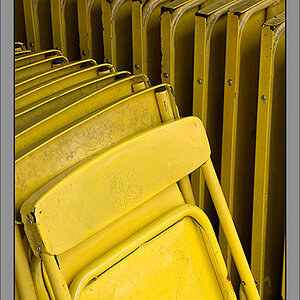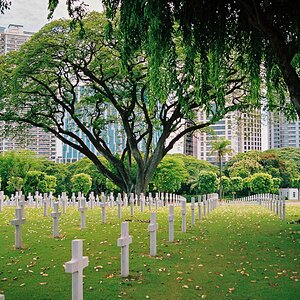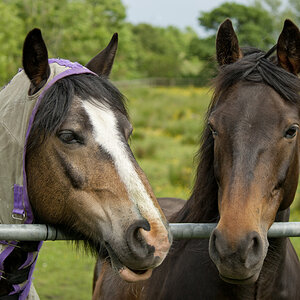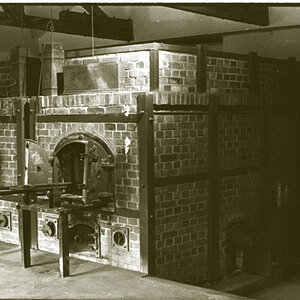gsgary
Been spending a lot of time on here!
- Joined
- Oct 31, 2008
- Messages
- 16,143
- Reaction score
- 3,002
- Location
- Chesterfield UK
- Website
- www.gsgary.smugmug.com
- Can others edit my Photos
- Photos OK to edit
It's all true. Because of the ability to make sharper, more saturated, more technically perfect images, this has become the standard of greatness. If any deficiency in exposure or sharpness exists in the photo, these are flaws to be eliminated - and these days, this means 'shopping them out. It's pretty clear that 'technical' has a narrow definition, and 'greatness' is being defined just as narrowly.
So 'technical' doesn't - or shouldn't - just mean digital process. And yet film and digital shots are being judged by the same technical details even though the process is different and the outcome will inevitably be different. People talk about "technical perfection" and they automatically mean what a digital camera can produce. I've seen plenty of film shots that could be considered technical masterpieces. They don't look the same as a technically perfect photo from a digital camera, but they are technically perfect nonetheless..
This is a straw man that you have set up rather than reply to what I said.
I didn't say that technical perfection was limited to digital images.
I said the the film process, as it is seen here and many places, generally produced images where the process itself intruded visible into the final product.
In other words, most images made with 35 mm equivalent film products look like film and, imo, lean too much on that 'look'.
I have a good friend who shoots 4x5 and larger cameras. He takes his time and the results are as beautiful as I have ever seen, both technically and artistically. Looking at his work on the Internet doesn't do it justice. His workflow bends the situation to his needs, he scouts the situation and decides on where the light must be when he shoots and then returns days or months later when the light is correct for his shot. His does his own developing and he uses a drum scanner to digitize the image for editing and printing.
Another friend shoots classic mountain landscapes with a Nikon3x and is an exquisite printer. Her work is carried by several fine galleries in the West and it is indistinguishable from the finest large format film b&w.
Their work is beautiful and, most important to me, the process is unseen in the final product.
If you good friend wet printed them they would be much better than a digital print








![[No title]](/data/xfmg/thumbnail/31/31092-7ba73f844ad8efedd3d5fd94799a866d.jpg?1619734609)




![[No title]](/data/xfmg/thumbnail/31/31090-4f0653c24dc61d2950c0fea87eb4d827.jpg?1619734606)